If your talk includes a reading, make sure the audience can see your book cover – a subtle advertisement!
With more indie authors being invited to take part in festivals, events and publishing conferences, some of our members have been asking for advice on public speaking.
“Anyone have tips for public speaking for introverts? And how to stop from freaking out? I need to address a gathering of about 250 people in two weeks. Please help!”
On our private Facebook forum (one of the many benefits of being a member of the Alliance of Independent Authors), authors already experienced in public speaking were quick to chime in with first-hand advice.
The following practical pointers are extracted from the ensuing conversation on Facebook:
Preparation
- Write out your whole speech. Practice it. Record it. Listen. Redo. Make a short bullet point list for actual speech. Keep it short; and simple. Focus on conveying one key message (that's all most people remember).
- The key is absolute understanding of the subject so that you're comfortable with any questions. It also helps shake off the imposter syndrome that can cause discomfort. If you know what you are talking about, you will be confident in that. If you do not, your audience will likely pick up on that. Not knowing your topic leads to nervousness. Knowing it leads to confidence.
- Write out your presentation verbatim. Go through your piece and write ‘PAUSE' in ginormous letters where it's applicable. We rush when we're nervous, and this makes us slow down.
- Prepare well, drink a glass of water, take long breath, stick to the points that you have prepared.
- Put your notes on cards rather than in the form of a long script. Scripts put the audience off and lead to you looking down all the time to read it. Cards enable you to glance at them for salient points without getting too caught up in the words on the page.
- Practising out loud adds an element of naturalness and fluidity. Natural speakers are more engaging.
- Deliver it from start to finish to an empty room a minimum of 10 times, even if you are sick of it. Do it. Deliver it so many times that you could do it without notes if you had to do so. Then deliver it to two or three trusted friends, and accept their criticisms. Incorporate their suggestions.
- Have someone record it – or just set your phone and record yourself. Look for odd movements of your hands or eyes and listen for non-value words like “um” and “uh” tossed in the middle. Filming removes some of the nerves, because you never look as bad as you think you're going to.
- Anticipate the questions that you'll receive, and then answer them.
- Eat an easily digestible, comforting breakfast on the day.
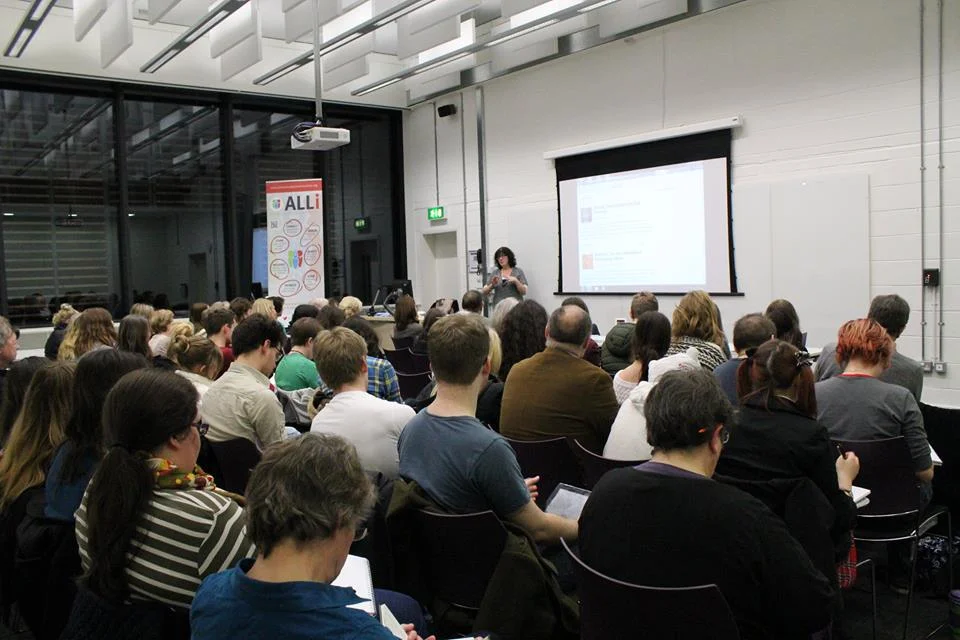
Only after Debbie Young had given her talk about self-publishing at Winchester University did she hear that there had been a local earthquake while she was speaking!
Positive Thinking and Other Mental Tricks
- Just remember: nerves are completely normal. Many very experienced speakers still get nervous symptoms beforehand – pounding heart, cold hands, odd tingling sensations – but the trick is not to fight the nerves but to accept and embrace them.
- Great actors with decades of experience get stage fright. Nervousness is useful because it generates adrenalin which keeps your brain sharp.
- Try to think more about good things it can bring to your career.
- Imagine everyone naked. You won't feel so shy then.
- Pretend you are an actor in a movie and this is a part you are playing.
- Bruce Springsteen says do not think “I am nervous”, think “I am excited”. It makes a real difference – one has much more positive vibes than the other.
- Take deep breaths before you go on stage – you can get caught out by being short of breath as the nerves start to set in, just before you go on.
- Try not to gabble in order to get it over as quickly as possible!
During the Talk
- Wear clothes that are comfortable that make you feel happy and confident and true to yourself – not something that you think a speaker ought to wear.
- Arrive early to get a “feel” for the room. As people arrive, greet them and learn their name. If you do this with even a few people, you'll feel more of a connection.
- Think of the audience as a friend you wish to tell something. Pick a couple of people in different parts of the audience and look them in the eye while you say important things (helps you to judge how you're doing and creates a personal connection with the audience). Speak slow and LOUD (that person you're speaking to is hard of hearing). If you look good, sound normal and teach them one thing they didn't know before, you will be in the top 25% of public speakers.
- Look at individual faces in the audience as if talking to only them. Fix your eyes on people in the back row – it's less intimidating than faces immediately in front of you. Also, that encourages you to throw your voice to the back.
- An alternative view: Avoid looking directly at individual persons in the audience. Inevitably, your mind will zero in on some aspect of them, their face, their glasses, their expression, their hairstyle, and you have the potential to lose track of where you were headed with your presentation. This “rule” does not apply if you are deliberately interacting with the audience, say in a teaching context. Otherwise, look at the back wall just over their heads, and look at spaces between seats. It will feel to the audience as though you are looking at them. Let your eyes “surf” over the audience without locking in or focusing on any one person.
- Remember, the audience wants you to do well as much as you do – they don't want to bear witness to anyone's embarrassment. Take a deep breath, as many times as you need to, throughout. They are there because they wish to be there. They chose to be there. They want to hear what you have to say. They want to be entertained.
- Avoid “umms” and “errs”. If your mouth begins to run away faster than your brain can keep up, simply stop speaking, even in the middle of a sentence, while you gather your thoughts. This has the added bonus of lending gravitas.
- Have water with you. Sip it from time to time if you need to, and let that be a natural part of your presentation flow. Don't let your mouth get dry. I have even held a water bottle and continued speaking after taking a sip.
- Deliberately slow down. When we become anxious, we tend to speed up. Relax. Take your time.
- Unchain yourself from the podium. Roam the stage. Move about.
- If your talk includes a reading from one of your books, read from an actual copy of the book and hold it high up where people can clearly see the cover. It increases the chance they'll buy it afterwards and looks more impressive than reading it from a sheaf of paper or an ereader.
- If you are teaching, don't expect them to remember too many key points (three at the most). If you are entertaining, then go for it. Lead them to a point of pure enjoyment, laughter, silliness.
Finally, remember this: the worst thing that could happen is they swarm the stage and kill you.
Further Advice
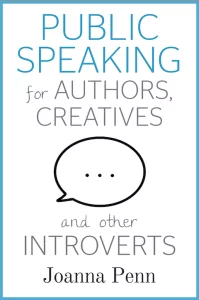 Amy Cuddy's TED talk on what we tell ourselves with our body language
Amy Cuddy's TED talk on what we tell ourselves with our body language- Public Speaking for Introverts, Joanna Penn's self-help book on public speaking especially for authors
- Stage Fright: 40 Stars Tell You How They Beat America's #1 Fear – especially the part by Maya Angelou. It's all about the message, it's not about you at all!
Thanks to the following ALLi authors for coming to the enquirer's rescue and sharing the discussion with the enfailing generosity and good humour that is characteristic of our Alliance:
Rasana Atreya, Alan Brunstrom, Keith Dixon, Damon J Gray, Jackie Griffiths, Tim Gurung, Helena Halme, Laxmi Hariharan, Tim Hewitt, Seeley James, Fiona Joseph, Ritesh Kala, Helen Kara, Timothy Lewis, Michael MacMahon, Rosalind Minett, Elizabeth Narramore Barron, Toby Neal, Joanna Penn, Hannah Perry, Mo R Phongsavan, A J Sendall, Jane Turley, Marcus Watney
#Authors - worried about #publicspeaking? These top tips will save you! Share on X
OVER TO YOU Feel free to add your top tips or ask questions via the comments box.

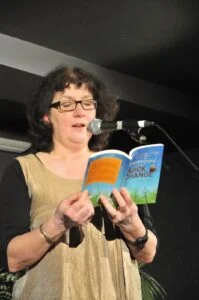
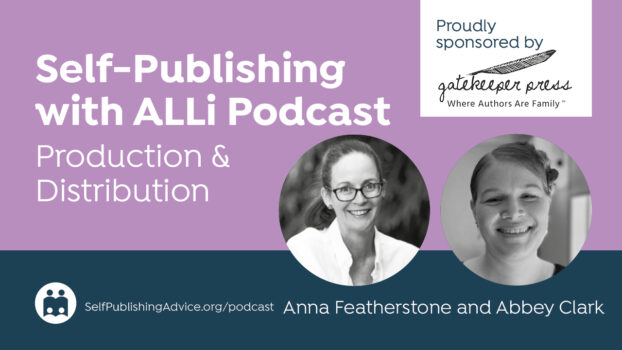

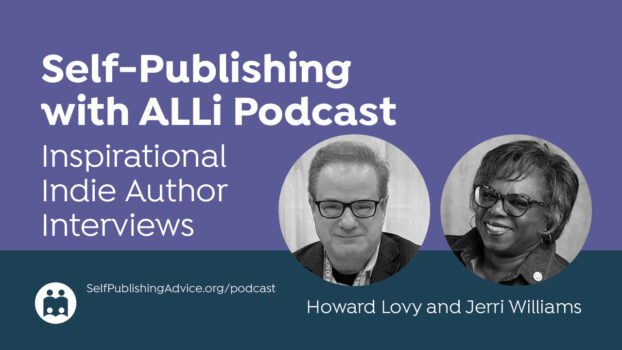
[…] How to Make a Speech at a Publishing Event – by Debbie Young […]
[…] Debbie Young With more indie authors being invited to take part in festivals, events and publishing conferences, […]
Lots of excellent advice there. I’d suggest one more thing: if you can, make ’em laugh. Of course I don’t mean try to be a comedian, telling silly jokes. But if you can find a place for anything humorous – about your book, its content, how it got published, why you chose its subject – include it, preferably near the start. You’ll all feel more relaxed. I often tell how one of my nieces when very young asked me solemnly, “Do you write about Roman Britain because you can remember what it was like then?” It gets a smile usually.
This one, Jane, is the most important of all. I always tell them some little funny anecdote which pertains (loosely) to my talk, and you see them smiling and it somehow brings you all together.
And remember – they want you to be good – they want you to entertain – but they are very forgiving. Sometimes I forget in mid sentence what I was saying, and I just tell them I’m having a blonde moment. It always gets a laugh. They feel happy because it shows you’re human, and they will have blonde and silver moments themselves.
Personally, I LOVE giving talks, but I’m always nervous before I ‘go on’. Bit like being on the stage. Once you’re on, the adrenalin kicks in and you’ll find yourself enjoying it to bits and the time flying by. Just don’t read from a script. It’s death to a talk. And don’t just stand in one position – move about a bit.
Lots of luck – you’ll be great!
You may want to watch a few TED Talks, or other speeches online. I find it so helpful to see what intrigues me, as well as what turns me off.
Good luck!! You will be awesome!
: )
I would advocate joining a Speakers’ Club. Google the ‘Association of Speakers’ Clubs’, there should be a club local to most people. The Club has 10 point program to work through and each speech is constructively critiqued by another member. I’ve found it a fantastic confidence builder – although I’m yet to branch out into author talks.
Excellent post, this covers all the points! I was very inexperienced at public speaking when I took over the running of a Finnish expat charity in London two years ago, but after reading Joanna’s book, and making a few speeches (in two languages, which was a further challenge), I am now fairly confident speaker. I still get nervous though! 🙂 everyone can do it, but preparation is key!
So many great points, saving for later. But this is the best advice: “remember this: the worst thing that could happen is they swarm the stage and kill you.”
If nothing else, remember that will make me smile and relax. Thanks!